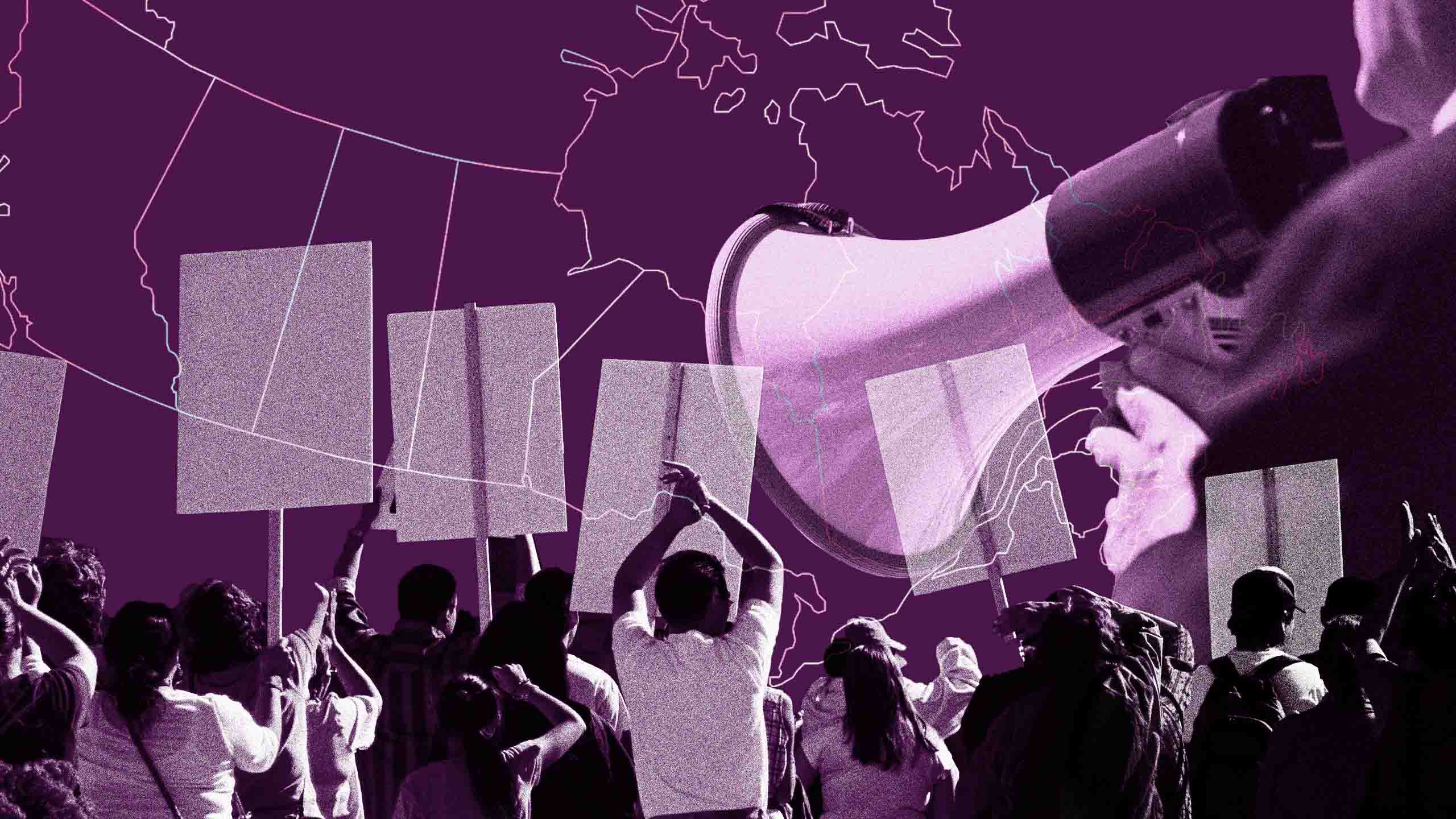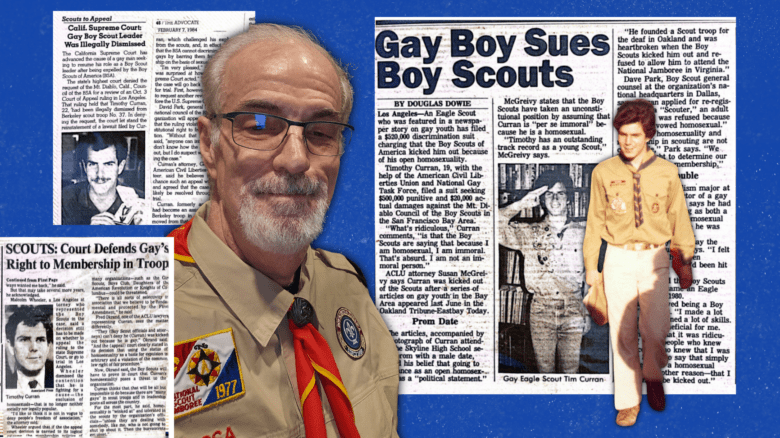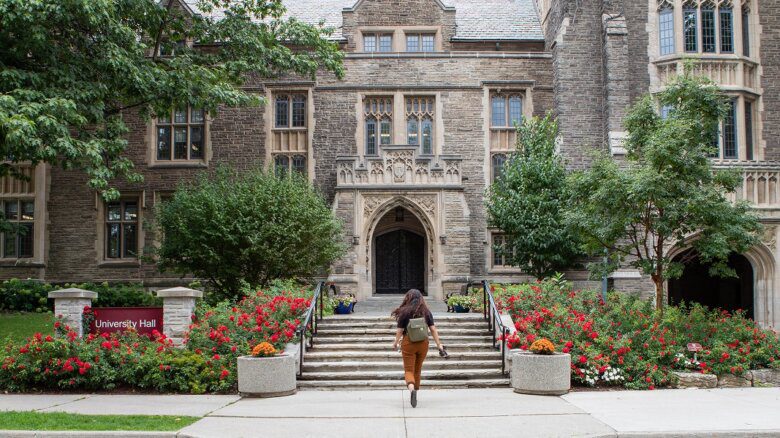Last fall, when Saskatchewan premier Scott Moe announced his government’s intention to legislate a spate of anti-trans policy items, Canada’s labour unions sprang into action. They tried negotiating directly with members of the Legislative Assembly of Saskatchewan, but to no avail. But if Moe’s government wasn’t going to listen to the unions over the phone, he was going to listen to them chanting in the streets.
An October 2023 rally at the Saskatchewan legislative building in Regina saw hundreds of labour activists, trans students and allies and concerned parents of trans children come out in solidarity to protest Moe’s move to enshrine “parental rights” into provincial law—and to use Canada’s constitutional Notwithstanding Clause to do so.
Kristina Kearley is the Pride Committee Chair for IATSE 891, an entertainment union; as well as a coordinator for the the BC Flying Squad Against Transphobia. The Canadian Labour Congress (CLC)—Canada’s largest labour organization—launched flying squads like the one in BC last May, when delegates at the CLC’s Constitutional Convention passed an emergency resolution to provide direct-action support to LGBTQ2S+ workers facing attacks from anti-queer “hate.” Today, that support looks like everything from education to legal action for BC unions and union members.
“While the flying squads have been boots-on-the-ground in communities at counter-protests, all-ages drag shows, we have also been participating and sometimes starting email, letter and petition campaigns,” Kearley tells Xtra. And the BC Flying Squad Against Transphobia can already point to some early victories. Together with groups like the BC Teachers’ Federation and Lawyers Against Transphobia, the Flying Squad’s research teams have helped orchestrate recently proposed legislation to create “safety zones” around BC schools limiting what Kearley calls “violent and hostile protests with documented track records of hate speech and misinformation.”
It was not the first time that Canada’s labour movement acted to protect the rights of trans people in Canada, in the workplace or in Canadian society at large. And it will not be the last.
A history of activism against anti-trans discrimination
For decades, unions have been key players in the fight against queerphobic discrimination.
South of the border, queer organizing and labour organizing have long gone hand in hand. It was the Marine Cooks and Stewards Union that won the U.S.’s first workplace protections for gay employees; as early as 1936, the union was campaigning under the slogan: “It’s anti-union to red-bait, race-bait or queer-bait.”
In 1970, the American Federation of Teachers became the first U.S. federal labour union to issue a statement demanding the end of anti-LGBTQ2S+ discrimination. In 1979, the politically powerful AFL-CIO, the largest federation of labour unions in the U.S., publicly called on the U.S. federal government to enact legislation countering discrimination in the workplace on the basis of sexual orientation. And in 1994, the non-profit Pride at Work was established by LGBTQ2S+ union activists in New York, becoming an official AFL-CIO constituency group three years later.
The Canadian labour movement really took off in the 1960s, with that decade witnessing a number of large-scale strikes which, in turn, gave LGBTQ2S+ activists a model for organizing and mobilizing the Canadian queer community. In 1979, the Canadian Union of Public Employees—which represents workers in sectors as diverse as healthcare, municipal government, social services and transportation—called on governments at all levels “to extend human rights protection to sexual orientation and disability.” By the 1980s, the Ontario Secondary School Teachers’ Federation handbook on salary policy stated that, among other things, they would oppose discrimination on the basis of sexual orientation.
In 2008, Pride at Work Canada launched as “a volunteer-run organization focused on networking.” Its reach quickly grew to include “hundreds of public and private organizations that collectively employ millions of people across Canada.”
A year later, the CLC published a guidebook to assist unions in negotiating accommodations for their trans members. They would update the guidebook in 2019, declaring in its pages that “Unions have a legal and moral obligation to be inclusive to trans workers, and to support them in our workplaces and in our union activities.”
That obligation continues to guide labour organizing today.
Fighting anti-trans discrimination in the present
Larry Rousseau is the executive vice president of the CLC.
Referring to the rising tide of anti-trans legislation and government policy sweeping across Canada, he tells Xtra that the CLC’s “fundamental philosophy is that if you attack one, then you are attacking all.” Whether it is an assault on the rights of trans workers, or on the rights of workers with disabilities or on the rights of Indigenous workers—“an attack against any one of those groups … is an attack against all workers.”
The sentiment is rooted in the foundational philosophy of the labour movement: “An injury to one is an injury to all.”
And for Rousseau, the injuries that trans people are facing in the workplace are very real. “Harassment and discrimination in the workplace constitute violence in the workplace,” he tells Xtra, noting that Canada has signed on to a United Nations convention to that effect. And it is “the union’s responsibility to make sure that any incidents of violence in the workplace—of hatred, harassment and discrimination—are addressed.”
One of the key ways in which unions do that is through their collective bargaining agreements with workplace management.
Employees who are not part of a union must negotiate their employment contracts individually. Collective bargaining allows a union to negotiate the terms of employment for all the union’s members, together. These terms can cover everything from employee salaries to anti-discrimination protections. And the right to negotiate them is constitutionally guaranteed under the freedom of association enumerated in the Canadian Charter of Rights and Freedoms.
It is true that Canadian law enshrines many of those protections in human rights legislation. It is contrary to the Alberta Human Rights Act, to cite one example that is representative of Canadian law on this front across provinces, for an employer to “refuse to employ or … discriminate against any person with regard to employment or any term or condition of employment” because of that person’s “gender,” “gender identity,” “gender expression” or “sexual orientation.” This means that a person who has been discriminated against in the workplace on one of those bases has the ability to file a formal complaint with the Alberta Human Rights Commission, and to seek a legal remedy.
But that is an individual process: A person has to engage in it by themselves.
Members of a union have the added protection of being part of a larger workers’ organization that can advocate on their behalf.
“Unions shift and enhance culture at the workplace,” Kearley tells Xtra, “and the biggest part of that shift is in the equity we drive: pay equity, hiring equity and supporting workers who have a right to safe work and respectful environments.”
More than 30 percent of all Canadian employees, across all sectors, are covered by collective bargaining agreements. And while some industries are more heavily unionized than others—nearly three-quarters of public administration workers are unionized, for example, while only 12 percent of “wholesale and retail trade workers” are—this makes unions massive players in Canadian society.
That gives them quite a lot of sway over the Canadian legal and policy landscape.
Which is why it matters that Canada’s unions are engaged in the fight for trans rights.
Emmanuelle Lopez-Bastos is the Human Rights, Equity and Diversity coordinator at the United Food and Commercial Workers Union Canada (UFCW), a private-sector union with more than a quarter of a million members. In 2013, she helped found a constituency organization—UFCW OUTreach—that works toward LGBTQ2S+ equality within UFCW-affiliated unions and within the workplaces those unions represent.
She tells Xtra that if UFCW “can’t be a trans-affirming union, then we’ve no sense in talking about anything else.” After all, if UFCW is going to negotiate for better conditions for all of its members, then it needs to address those areas where trans people are being left behind.
And, unfortunately, there are plenty of those.
In 2020, the UCLA Labor Center and UFCW OUTreach published a report summarizing the results of a survey of more than 1,000 union members in Canada and the U.S. The findings were striking. Not only did 42 percent of LGBTQ2S+ participants report feeling “unsafe in their workplaces at least once because of their gender or sexuality,” but 83 percent of survey participants stated “that LGBTQ2S+ issues should be supported by union leaders.”
Canada’s labour leaders are listening.
Why unions care about trans rights
According to Lopez-Bastos, members of Alberta’s UFCW Local 401 recently directed their representatives to prioritize trans rights in their collective bargaining negotiations. This includes, among other things, prioritizing agreements that guarantee access to gender-affirming healthcare. It was partly a response to the announcement by Alberta premier Danielle Smith, in February, that her government would be legislating a slurry of measures targeting trans youth come the fall.
“Trans workers’ needs are basically the same needs as any other worker,” Kearley tells Xtra. But there are still a number of reasons why unions are taking legislative attacks on trans rights serious as specific threats.
One reason is that they make it more difficult to secure progressive gains through collective bargaining. If conservative politicians successfully roll back legislative protections for the human rights of LGBTQ2S+ people, then unions have to fight to ensure that those same protections are included in the agreements they strike; in other words, the rights are no longer the legal default position. But if the legislative protections stay in place, unions don’t have to bargain for them and can instead use their bargaining power to move forward on other issues like wages and healthcare benefits.
As Rousseau sees it, there’s also a very real risk that anti-trans ideologies will spill over from the political sphere into people’s places of work. After all, when public figures start attacking trans people, it empowers managers and other workplace leaders to attack trans people too. “And with hatred becoming normalized,” Rousseau reflects, “we’re seeing the gains that we’ve made over the past few decades being rolled back.”
Which is why Canadian unions are responding to anti-trans attacks with “training, education, awareness and representation,” Lopez-Bastos says. “The workplace is a microcosm of the barriers experienced by LGBTQ2S+ persons in society at large. Working diligently to strengthen LGBTQ2S+ rights at work leads to cultural shifts and protections beyond unionized workplaces.”


 Why you can trust Xtra
Why you can trust Xtra


